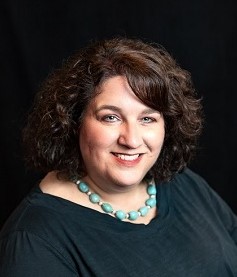ABA supports several of the Biden administration’s proposed nursing home reforms

Image from Shutterstock.
Nina Kohn, a professor at the Syracuse University College of Law, has long focused on the intersection of the law and the experiences of older adults, including those who need long-term care.
As chair of the ABA Section of Civil Rights and Social Justice’s Elder Affairs Committee, Kohn promotes association policies that address issues with quality of care in nursing homes. In recent months, she has helped draw attention to three policies that closely align with nursing home reforms the Biden administration announced in February.
 Nina Kohn is a professor at the Syracuse University College of Law.
Nina Kohn is a professor at the Syracuse University College of Law.
“The ABA has played a leadership role historically in thinking through the law around long-term care,” says Kohn, who is also a visiting professor and distinguished scholar in elder law at Yale Law School’s Solomon Center for Health Law and Policy. “That has been in part through particular entities within the ABA, such as the Commission on Law and Aging, which has been an important resource for advocates, but also through some discreet resolutions the ABA has adopted over the years.”
More than 1.4 million people live in more than 15,500 Medicare- and Medicaid-certified nursing homes, according to the U.S. Department of Health and Human Services Office of Inspector General. In its announcement, the Biden administration emphasized COVID-19’s severe impact on residents and staff in these facilities, with more than 200,000 dying from the virus in the past two years.
It has tasked HHS with developing and implementing reforms that aim to “improve the safety and quality of nursing home care, hold nursing homes accountable for the care they provide, and make the quality of care and facility ownership more transparent so that potential residents and their loved ones can make informed decisions about care.”
ABA adopts several policies to help improve long-term care
In one Biden administration initiative, HHS’ Centers for Medicare & Medicaid Services will explore how to phase out nursing home rooms with three or more residents and promote private rooms.
The ABA adopted a resolution in August that urges Congress and HHS to consider implementing specific standards in nursing homes that require single rooms and private bathrooms “given their safety and infection control advantages in public health emergencies such as the COVID-19 pandemic.” It also calls on CMS to change Medicare and Medicaid regulations and policies to pay for these accommodations for all residents.
“This is someone’s home,” Kohn says. “This is maybe where they are going to spend years of their life. If you have two or three beds to the room, it really makes it hard for individuals to exercise their basic civil rights and civil liberties.”
“But also, as we saw in very tragic detail with COVID-19, multibed rooms make it really difficult to engage in good infection control,” she adds.
Under another proposal, the Biden administration asks CMS to “improve the public transparency of facility ownership and safeguard nursing home residents.” It suggests ways the agency can achieve this, including by improving transparency of facility finances; enhancing Nursing Home Care Compare, a website that helps families choose a facility for older relatives; and examining the role private equity investors play in the industry.
At its midyear meeting in February, the ABA adopted a resolution that outlines a similar action plan. It urges Congress and CMS to create a national system that audits nursing home ownership reports to ensure the disclosure of all owners, including parent, management and property companies. It also asks them to increase their focus on nursing home chains by adding information about facilities owned by the same companies to Nursing Home Care Compare.
“Making the decision to place your loved one, a vulnerable loved one, into a nursing home is a difficult decision in even the best of circumstances,” Louraine Arkfeld, a past chair of the Commission on Law and Aging, told the House of Delegates at the time. “So, wouldn’t you want to know who owns the nursing home? Who really manages the nursing home? Who really controls the decisions, the care decisions, that are going to be made?”
Kohn also highlights a third initiative, in which the Biden administration is encouraging CMS to increase financial penalties and enforcement sanctions against poor-performing nursing homes. She says this proposal follows a long-standing ABA policy from 1983 that urges the use of effective enforcement mechanisms to ensure adequate quality of care in facilities that participate in Medicare and Medicaid.
“For decades now, the ABA has understood how important enforcement is in this space,” Kohn says. “On paper, nursing home residents have robust rights related to quality of care and quality of life. The problem is that there is ineffective enforcement of those rights and, as a result, what are on paper very clear requirements end up being treated more as aspirational goals.”
 Mark Parkinson is the AHCA/NCAL’s president and CEO. Photo courtesy of the AHCA/NCAL.
Mark Parkinson is the AHCA/NCAL’s president and CEO. Photo courtesy of the AHCA/NCAL.
Advocates and industry groups react to nursing home measures
The Biden administration also plans to establish a minimum staffing requirement in nursing homes. As part of this process, CMS has asked for public feedback on how increased staffing could lead to better health outcomes for residents.
Toby Edelman, a senior policy attorney for the Center for Medicare Advocacy, has represented older adults in long-term care facilities since 1977. She has discussed many of the possible changes, and specifically the issue of staffing, for much of that time.
“The staffing in nursing homes is inadequate,” Edelman says. “There was a huge report that was done for the federal government in 2000 that found most nursing homes don’t have enough staff, and it really hasn’t changed. If anything, during the pandemic it’s gotten far worse.”
The American Health Care Association and National Center for Assisted Living, which represent more than 14,000 long-term and post-acute care providers, agree there was a shortage of workers even before the COVID-19 pandemic.
But Mark Parkinson, AHCA/NCAL’s president and CEO, said in reaction to the Biden administration’s proposals that facilities cannot meet additional staffing requirements when they already can’t find employees to fill current positions or compete against employers with more resources.
“Additional oversight without corresponding assistance will not improve resident care,” Parkinson said in a statement. “To make real improvements, we need policymakers to prioritize investing in this chronically underfunded health care sector and support providers’ improvement on the metrics that matter for residents.”
Congress is considering the Nursing Home Improvement and Accountability Act, which would establish reporting, staffing and other quality control requirements for nursing homes. This legislation could also provide additional resources through Medicaid to support staffing improvements and increase wages.
 Lori Smetanka, the executive director of the National Consumer Voice for Quality Long-Term Care. Photo by Jacqui South Photography.
Lori Smetanka, the executive director of the National Consumer Voice for Quality Long-Term Care. Photo by Jacqui South Photography.
Lori Smetanka, the executive director of the National Consumer Voice for Quality Long-Term Care, a national nonprofit advocacy organization, has also pushed for industry reforms for decades. She credits the ABA for supporting several of the proposed provisions.
“We’ve put a lot of money into the system,” Smetanka says. “It’s not going for direct care the way it should, to the extent that it should, and the result is that residents are not receiving the services that we’re paying for and to which they are entitled.
“So, the more voices we have speaking out and recognizing that fact, like the ABA, just reinforces more broadly the need for these changes.”
See also:
ABA Journal: “Coronavirus-related deaths in nursing homes prompt lawsuits and questions about who’s responsible”
ABAJournal.com: “At least 15 states grant lawsuit protection to long-term care facilities during pandemic”



